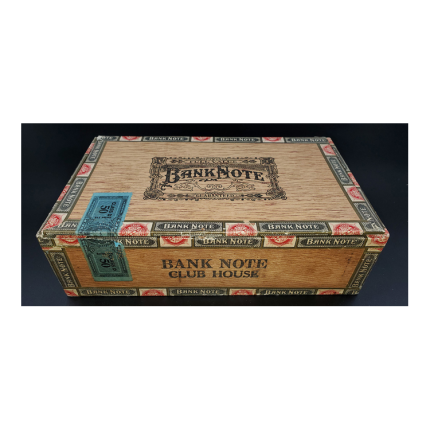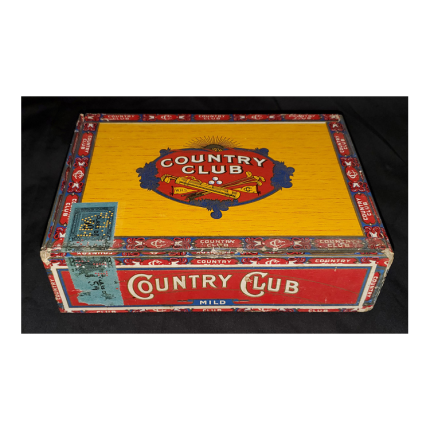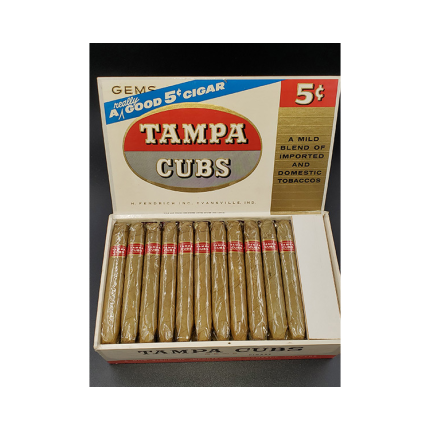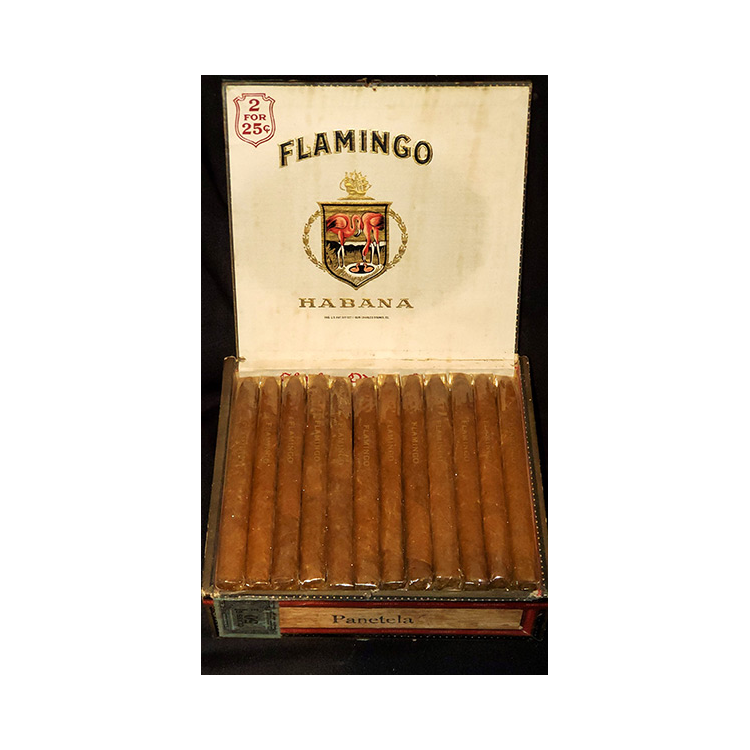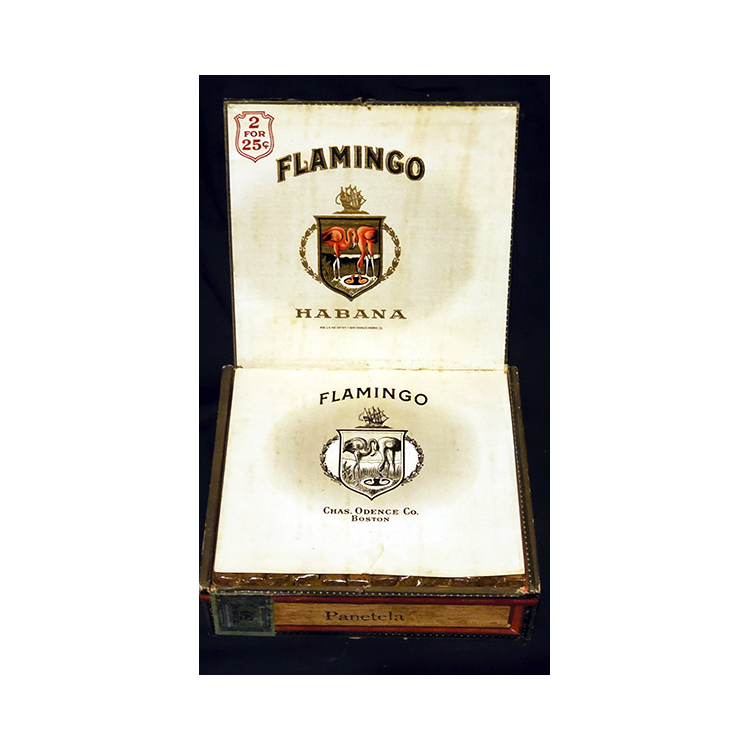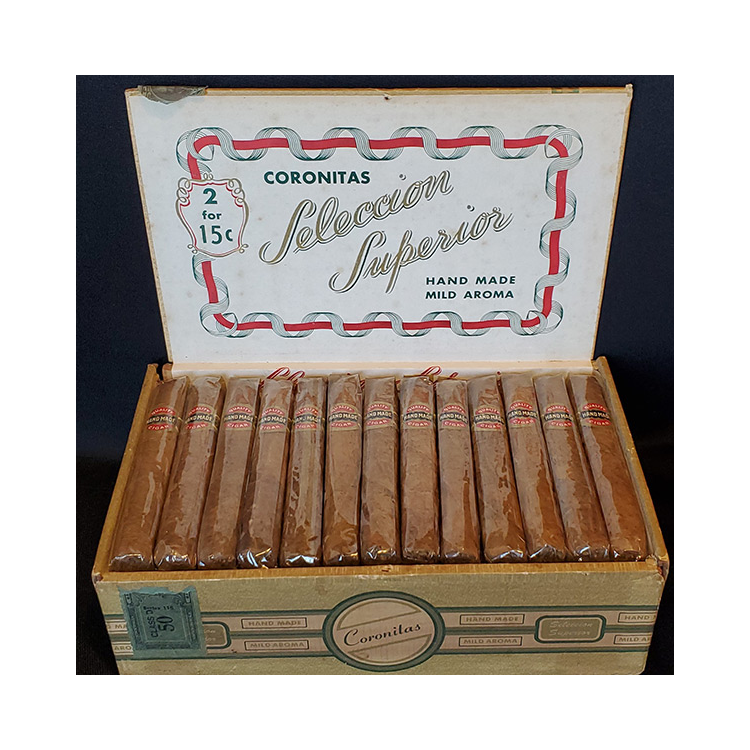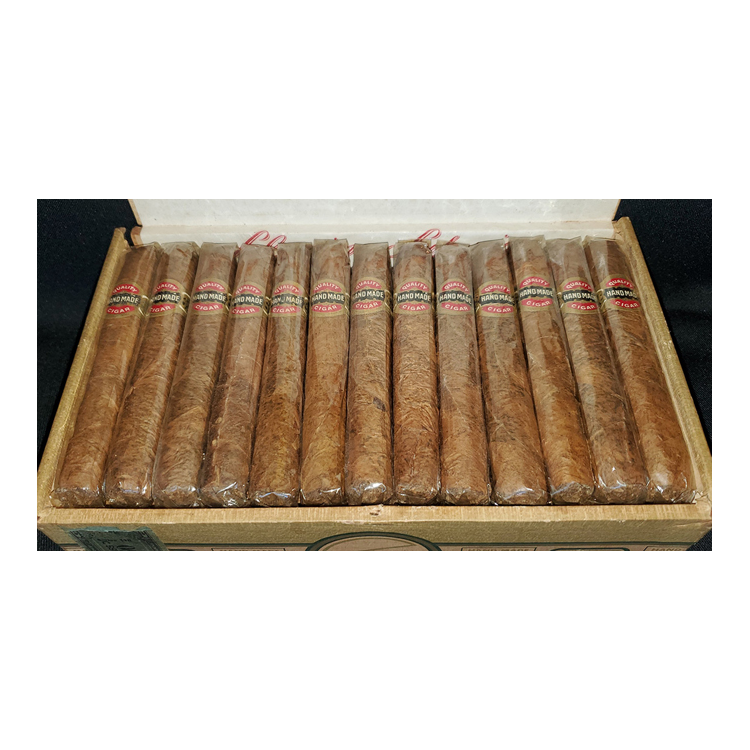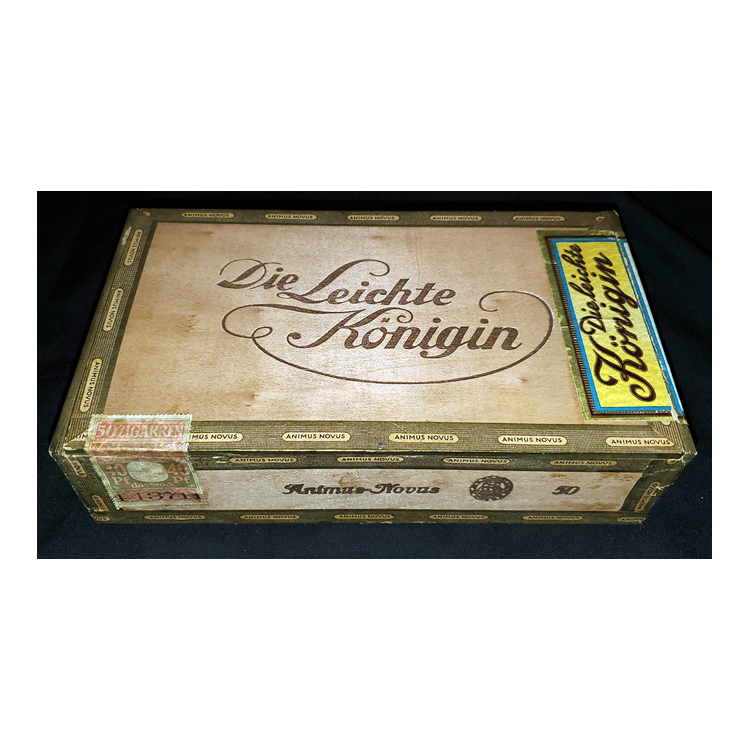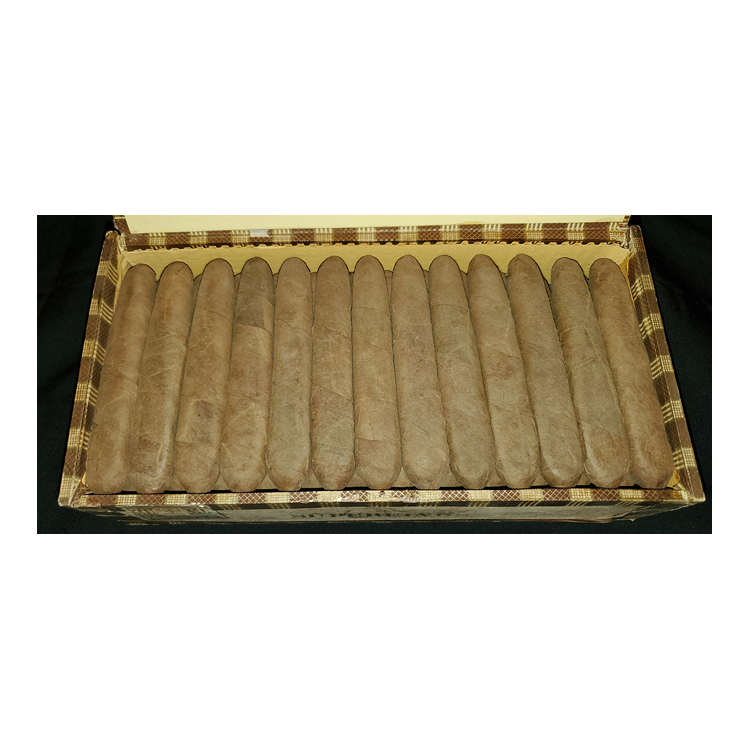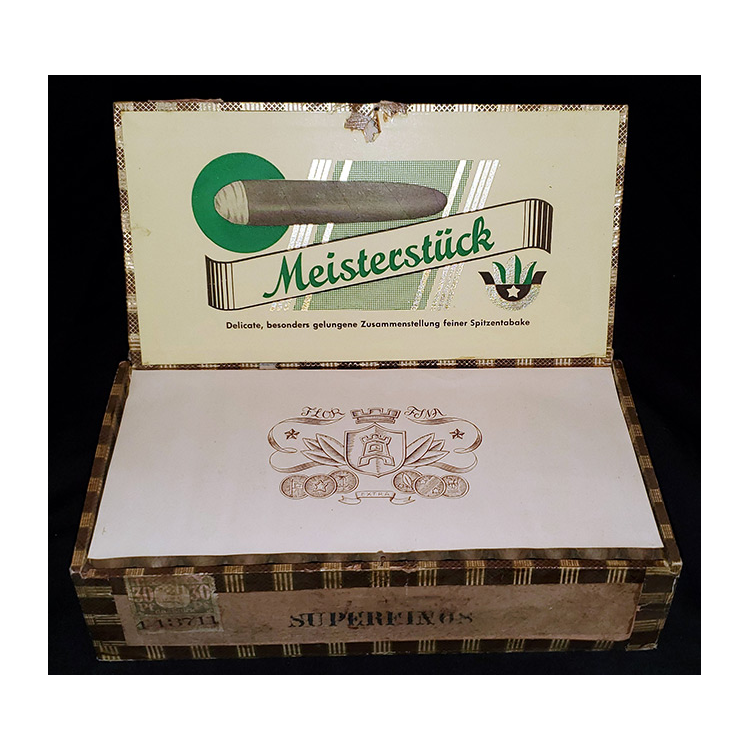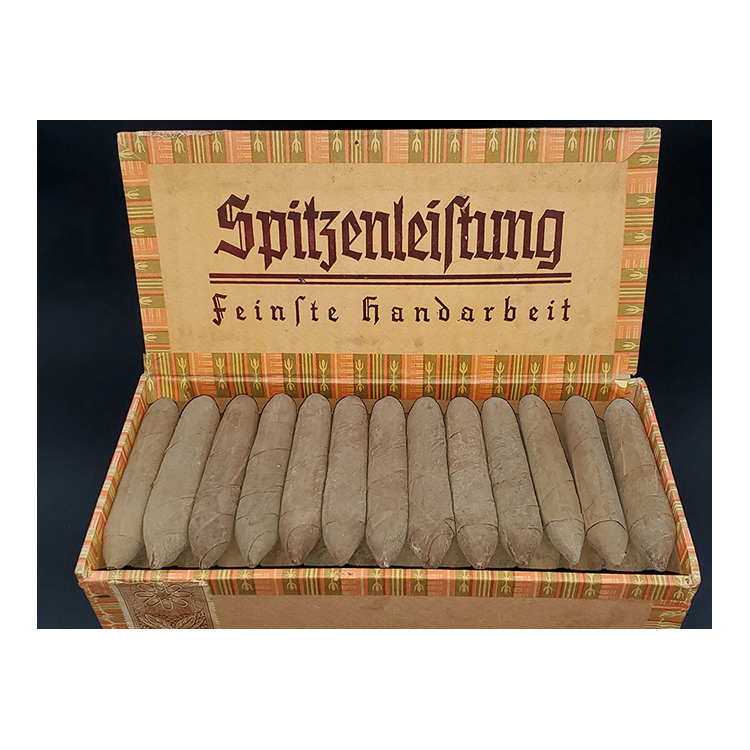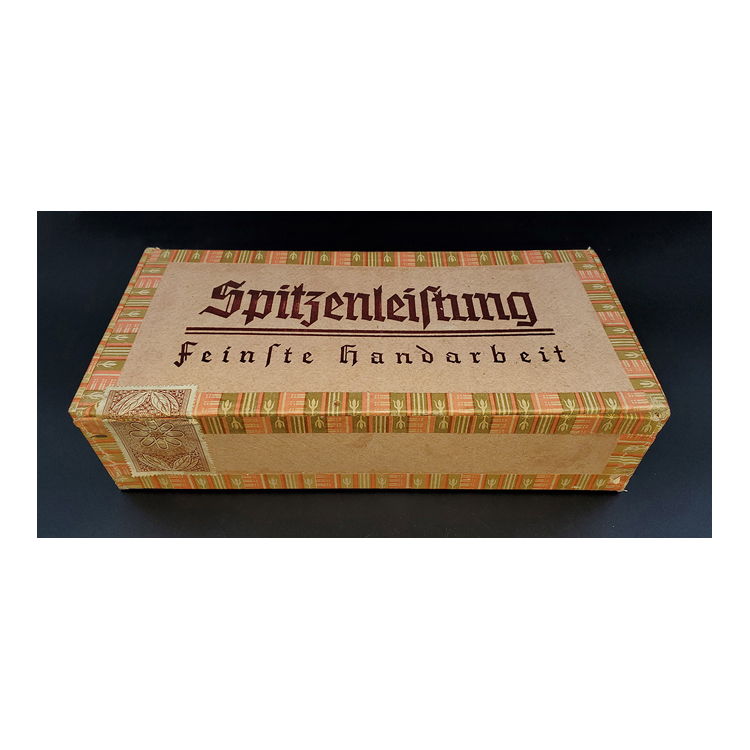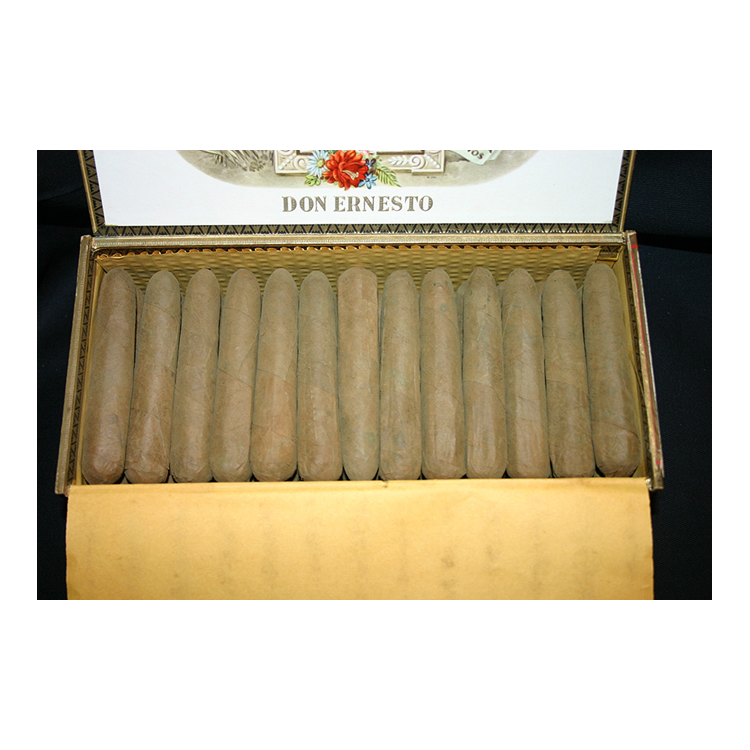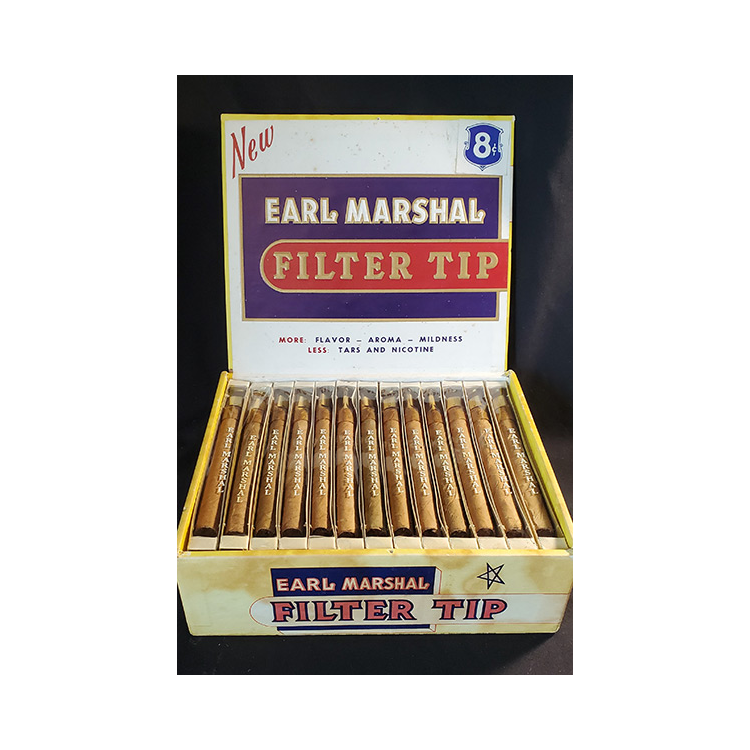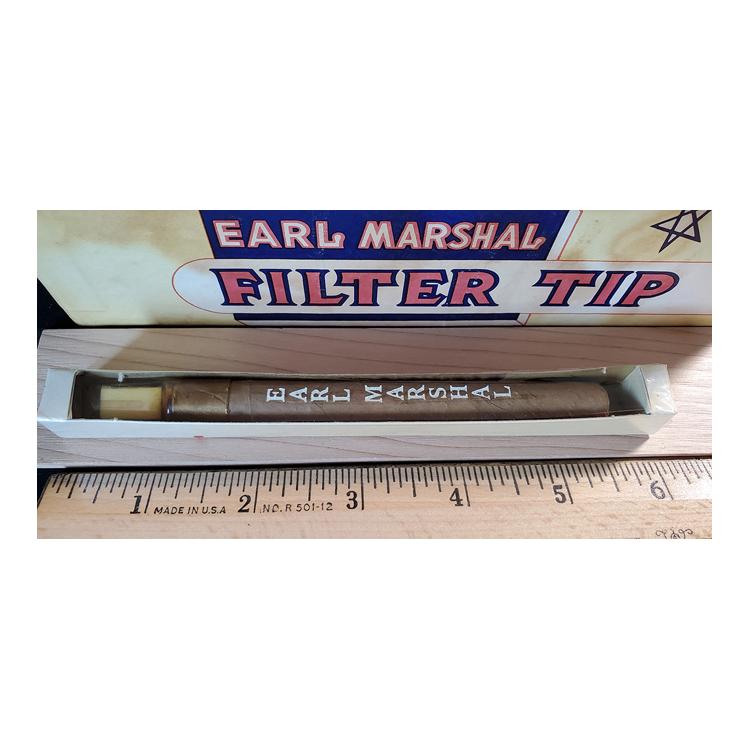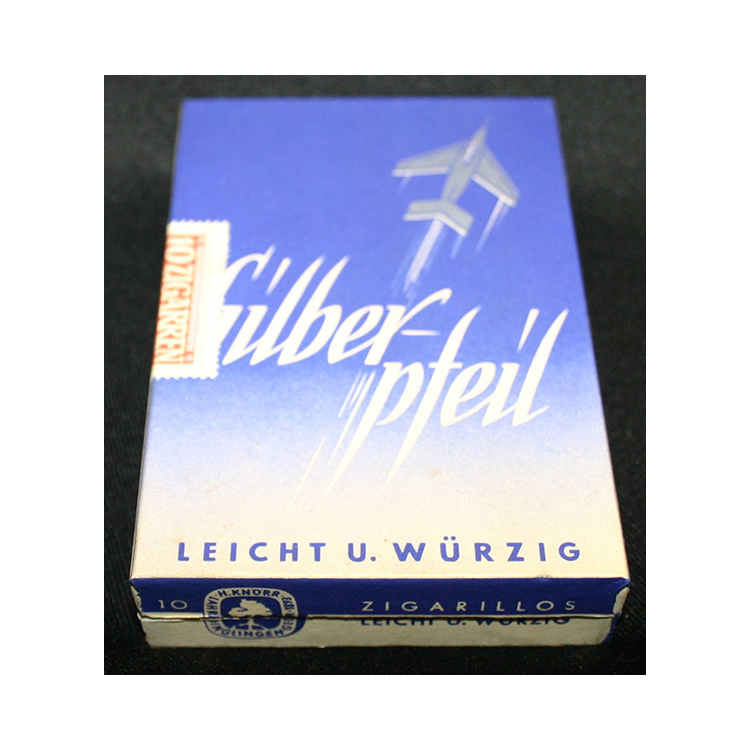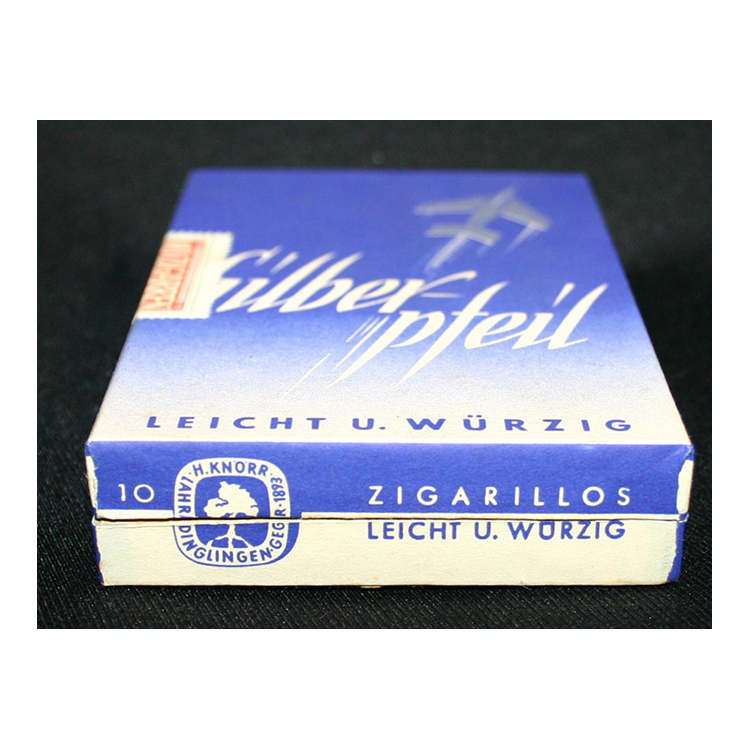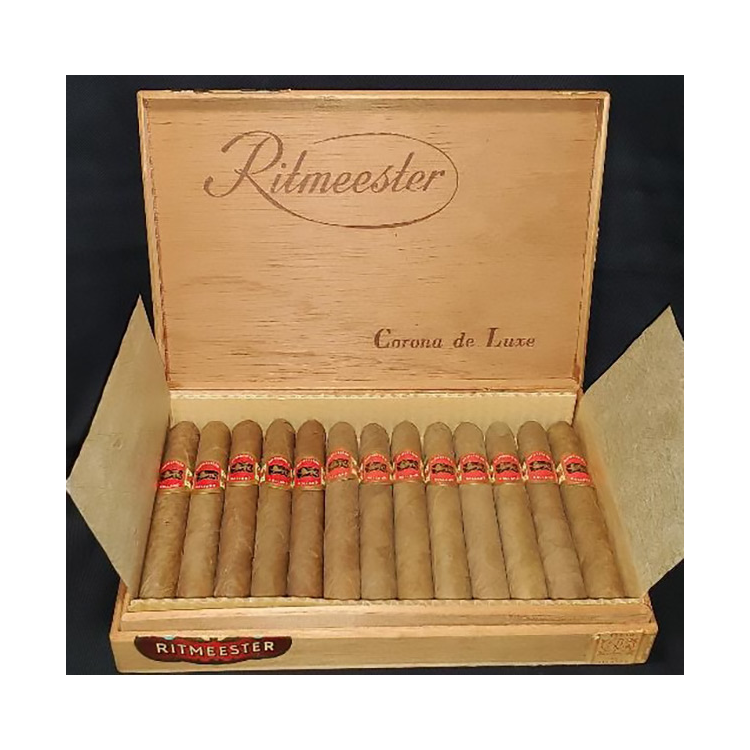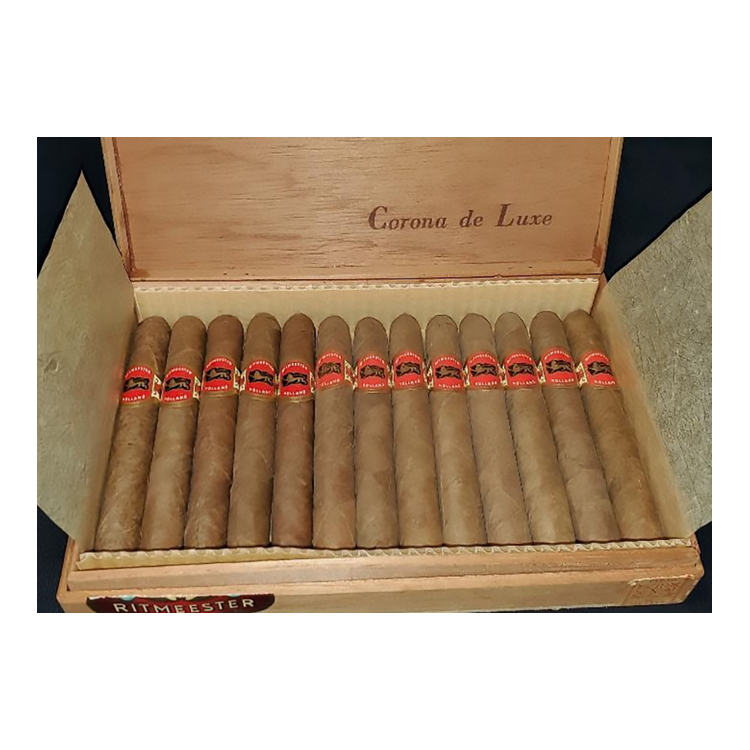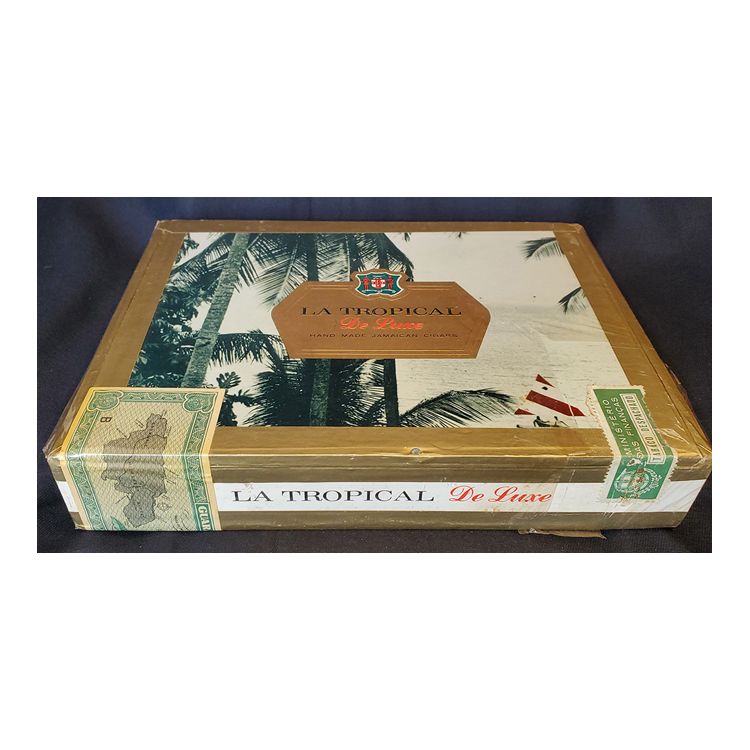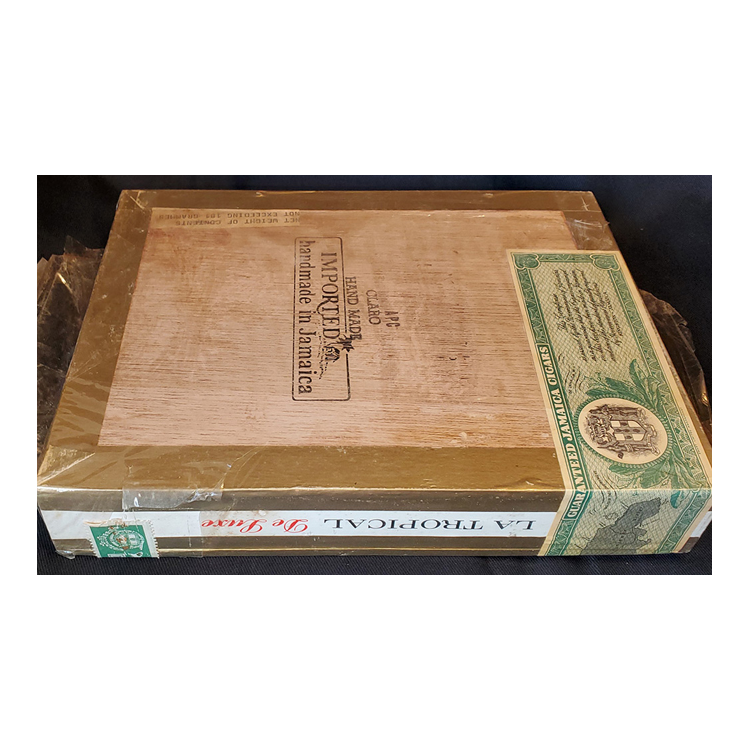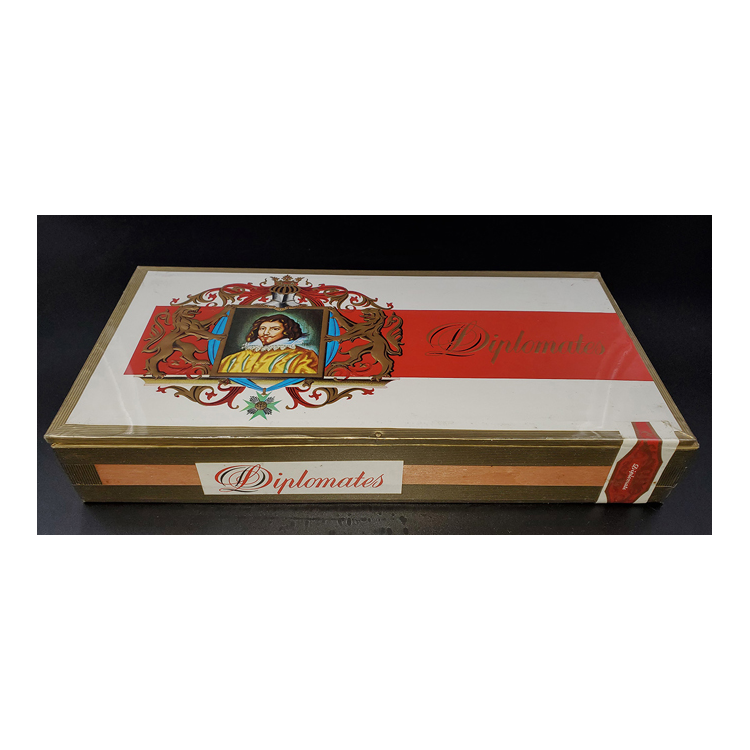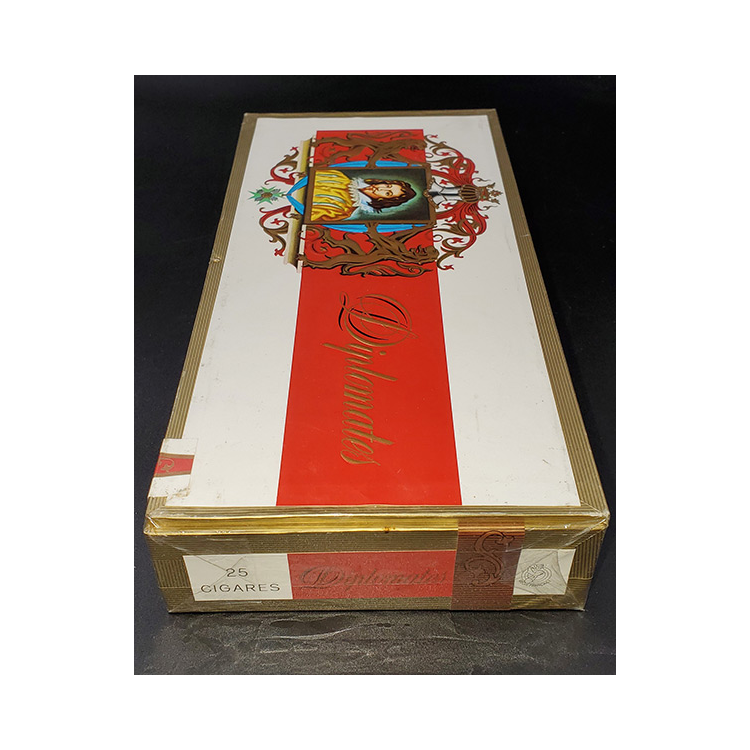Shop
Product categories
- HAND MADE 83
- HAVANA FILLED 22
- HAVANA LONG FILLER 5
- LONG FILLER 40
- Merch 3
- NON-VINTAGE CIGARS 101
- PRE-EMBARGO 7
- RARE/HARD TO FIND 89
- Vintage 128
Filter by price
Top rated products
Showing 16–30 of 128 results
1946 FLAMINGO PANETELA HAVANA SINGLES
$40.00Charles Odence Company: The Boston based cigar firm of Charles Odence Company was founded in 1880 by Charles Odence, an 18 year old Russian immigrant. Various nephews, nieces and children followed Odence from Russian and worked for the company. When Charles died in 1910, the business was temporarily run by his daughter Mary and ultimately taken over by is oldest son Meyer Odence. Over the years, Charles Odence Company occupied several Boston addresses including 15 Commercial Wharf, 132 Broad Street, and Dock Square. Meyer, who lived on Cape Cod, moved the business to Lyanough Road in Hyannis in the 50's. The doors closed after 85 years when Meyer died in 1965. Odence Cigars produced and distributed cigars to wholesale customers including many US military bases. Brands included Bacchante, Flamingo, Clipper and Villazon.
This box was dated using the tax stamp "series 116". The method below states to add one year after each series starting in 1932 with series 102.
FROM MYSTIC STAMP COMPANY: Cigar Revenue Tax Stamps
The first Cigar Revenue stamps were issued in 1846, with the tax rate based on the value of the cigars. A short time later, a flat tax per thousand cigars was introduced. In 1917, cigars were once again taxed according to their value. The cigars were designated Class “A” through “E,” with “E” being the most expensive. Class “F” and “G” were later added to meet the increasing cost of cigars. In 1932, a numbering system began for the Cigar Revenue Stamps, with the first series designated “102” and valid for one year before it was replaced with “Series 103.” The practice continued in subsequent years. As a consequence, “Series 123” Cigar Revenue tax stamps were issued in 1953, and so on. Cigar Revenue tax stamps were discontinued in 1959.
1947 BANK NOTE CLUB HOUSE SINGLES
$40.00The Bank Note brand was manufactured in Red Hill, PA by W. C. Frutiger and Co. This premium cigar brand was produced by the millions it it's heyday. These Club House figurados are made in the Perfecto style. This box of 50 is near mint and has been properly aged. Notice the one opened for photos has plume, Plume is evidence that you have a well-aged and properly cared for cigar. The white dust is crystallized oils from the cigar itself. Except for the cello aging they look like the day they left the factory over 70 years ago. Notice the closeup photo of the tax stamp showing a perforated 47 (1947).
1947 SELECCION SUPERIOR PUERTO RICO CORONITAS SINGLES
$30.00THIS LISTING IS FOR SINGLES FROM A RECENTLY OPENED BOX OF 1947 HAND MADE IN PUERTO RICO CIGARS. DATED FROM THE BLUE TAX STAMP AS SHOWN AND BOX DATA RESEARCHED BY BACKYARDCIGARS.COM. THEY ARE PUERTO RICO / CUBAN SHORT FILLED WITH EITHER A JAVA WRAPPER AND A JAVA OR CUBAN BINDER.
American West Indian trading Co.
The pioneer American firm in the leaf tobacco trade in Puerto Rico, is that of Levi, Blumenstiel & Co., who became established in that country in 1894.
Incorporated in 1898. The company pack and grow leaf tobacco, making a specialty of Porto Rican tobacco product, and also manufacture cigars, cigarettes and tobacco.
Annual output at its height 25 million.
1948 LA INVICTA JAMAICAN PETIT CORONA SINGLES
$45.00These hand made Jamaicans were in a sealed box until I opened them on 9/20/23. They are perfectly preserved and smell like cedar and spice. They were part of a large collection and I will be posting others soon. Very rare and won't last long!
1950’s GERMAN DIE LEICHTE KONIGIN (THE LIGHT QUEEN) SINGLES
$15.00This box is late 1940's to early 50's and they are hand made. This box was sealed until opened in 2020 for inspection. They were purchased from a German collector in Hamburg.
1950’s GERMAN MEISTERSTUCK SUPERFINOS HAVANA SINGLES
$35.00This box is late 1940's to early 50's and they are hand made with a Havana blend. This box was sealed until opened in 2020 for inspection. They were purchased from a German collector in Hamburg.
1950’s TAMPA NEEDLES HAVANA CIGARILLOS SINGLES
$15.00Hand rolled, Havana filled and wrapped in a cigarillo shape.
1950s DON ERNESTO PETIT BOUQUET SINGLES
$40.00La Rica Hoja, which translates to "The Rich Leaf", was founded in 1925 by Don Ernesto Gonzalez Perez, and was later passed down to his son, Don Ernesto Gonzalez, now 93 years old and still supervising the company’s cigar production. Don Ernesto himself is also the Master Blender responsible for creating the blends. The Gonzalez family owns their own tobacco plantation on the island of La Palma, which is one of seven Canary Islands, and is well known for the quality of their leaf. After Don Ernesto opted to continue the family business taught to him by his father, he was joined by his son-in-law, Don Miquel Perez Hernandez, who was exiled from Cuba where his family owned their owned the Finca El Purial plantation and El Surco cigar factory. Don Ernesto cigars have long been a favorite of cigar aficionados in Spain, Germany, and France and until recently, were not available in the United States.
1950s EARL MARSHAL FILTER TIP SINGLES
$15.00S. Frieders and Sons used tobacco from Pennsylvania, Connecticut, Florida and Central America. They eventually established their headquarters in Philadelphia, and in the late '40s, they produced cigars in Wilkes-Barre, Pennsylvania, then a hotbed for cigar manufacturing. At its peak, in the early 1950s, S. Frieder and Sons produced about 100 million cigars annually. These Earl Marshal Filter Tip cigars are individually packaged.
1950s GERMAN SILVER ARROW ZIGARILLOS SEALED PACK OF 10
$125.00THE GERMAN NAME SILBER PFEIL TRANSLATES TO SILVER ARROW. THESE PRISTINE BOXES ARE PART OF A LARGER GERMAN COLLECTION AND POSSIBLY CONTAIN CUBAN AND OR A BRASILIAN/SUMATRA BLEND AS MOST OF THE CIGARS OF THAT REGION HAD AT THAT TIME. THESE BOXES WERE DATED BY THE CURRENCY ON THE SEAL (PF) AND THE PERIOD OF THE COLLECTION WHICH RANGED FROM 1938 TO 1950s. ONE PHOTO SHOWS THEM IN THE ORIGINAL OUTER BOX ALTHOUGH THIS LISTING IS FOR A SINGLE PACK OF 10.
1950s RITMEESTER CORONA DE LUXE SINGLES
$35.00The information below was provided by Jose at Backyard Cigars: Backyard Cigars
Ritmeester cigars was owned by the Van Schuppen family established 1887. They manufactured in 5 factories in the Netherlands by the 1960’s.
They were popular in Canada as well as Australia, they entered the Australian market in 1964. They did well for a Dutch cigar company and were held in high regard.
During the 1950’s and 1960’s when many cigar companies were turning to homogenized leaf and machine rolling Ritmeester prided themselves on hand rolling and use of all natural tobacco.
In 1967 Johnny Hopkins had an article published in the Calgary Herald where it is talked about how Ritmeester is till practicing the dying art of the hand rolled cigar.
It is mentioned in this article that all Dutch cigars are made using only Indonesian tobacco.
In 1970 the Gallaher Co buys control of Ritmeester and by 1976 Gallaher is recruiting salesmen & saleswomen to develop sales for the Ritmeester brand.
The Ultimate Cigar Book by Richard Carleton Hacker mentions Ritmeester as being from Holland and one of the world’s premier Dutch type cigar using 100 percent tobacco.
The book also states Jochem Van Schuppen started manufacturing cigars in 1887 and introduced the Ritmeester brand in 1915. They are considered “Dry cigars” meaning they were kept at lower RH. In another book “ Hidden like Anne Frank: 14 True stories of survival written by Marcel Prins & Peter Henk Steenhuis Ritmeester cigars are mentioned because the Van Schuppens were actually hiding Jewish citizens from the Nazis. Employees for the Van Schuppen family aided in keeping families safe and hidden as well. The Van Schuppen family founders are Jochem & Marinus Van Schuppen and the first factory was started in Veenendaal. Today the company continues to produce and market cigars under The Dannemann Group as of 1989. George Dannemann is Brazilian and had a cigar factory in Brazil where Mata Fina flourished. Todays Ritmeester cigars lean heavily on Brazilian tobacco.
1954 LA TROPICAL DE LUXE JAMAICAN CORONA SEALED BOX OF 25
$1,200.00These are hand made Jamaicans in a sealed box. They were part of a large collection and I will be posting others soon. The box cello outer wrap is loose on the ends and was cut to add the tax seal. Both the tax seal and the Jamaican seal are intact. Very rare and won't last long!

